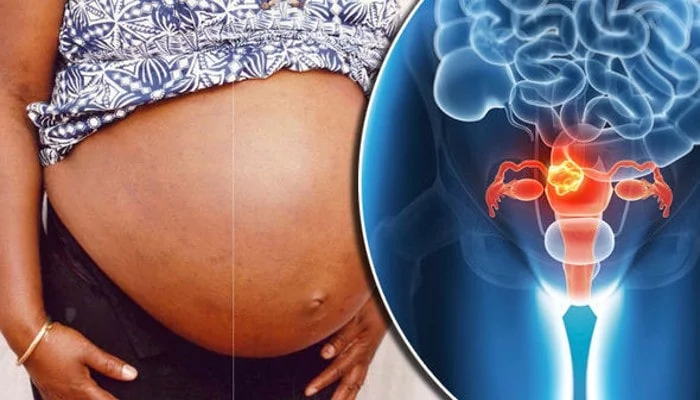Effects of Fibroids on Pregnancy
Estimates suggest that 20-50% of women have fibroids, noncancerous growths found inside or outside the uterine wall or underneath the uterine lining. However, since most fibroids don’t come with symptoms, many women live undiagnosed lives, and it is important to understand the effects of fibroids on pregnancy.
The exact cause of uterine fibroids is unclear, but there is evidence that it may be a combination of genetic, hormonal, and environmental factors.
What are Fibroids?
Uterine fibroids are benign (noncancerous) muscle tissue tumors in the uterus. They are also called myomas or leiomyomas. Fibroids occur when a single muscle cell in the wall of the uterus multiplies and grows to form a noncancerous tumor. Fibroids can change the shape or size of the uterus and sometimes the cervix (lower part of the uterus). Women usually have more than one fibroid tumor, but single fibroids are possible. Whether fibroids cause symptoms or require treatment depends on their location, size, and number.
Fibroids are usually found in or around the uterus’s body but sometimes in the cervix. In some cases, fibroids can prevent you from getting pregnant or carrying out a pregnancy successfully, but it depends on the size and location of the fibroid. Fibroids are usually found in or around the uterus’s body, but sometimes in the cervix. There are three main types of fibroids based on where they are found:
- Subserosal is in the outer wall of the uterus (55%)
- Intramural is found in the muscular layers of the uterine wall (40%)
- Submucosal protrudes into the uterine cavity (5%)
Suppose you’re trying to get pregnant through advanced technologies like IVF Treatment in Bangalore, Ayaansh Hospital can help you determine if there’s anything that could affect your fertility, from fibroids to endometriosis.

Effects of Fibroids on Pregnancy
- Fibroids are common. Most of the time, they don’t affect your ability to get pregnant. But if you have a lot of fibroids or they’re submucosal fibroids, they may affect fertility.
- Having fibroids doesn’t interfere with ovulation, but submucosal fibroids can make it harder for your uterus to support conception and maintain pregnancy. In some cases, this type of fibroid can cause infertility or pregnancy loss.
- Most women with fibroids will not be infertile. Women with fibroids and their partners should be thoroughly evaluated to find other fertility problems before they are treated. A fertility specialist can help assess if fibroids might be hampering conception.
At Ayaansh Hospital & IVF Center, our team can help you understand how fibroids impact fertility, which fibroids are harmless, and how you can treat fibroids without sacrificing your dream of being a mom.

How do Fibroids Cause Infertility?
There are several ways uterine fibroids can reduce fertility:
- Changes in cervix shape can affect the number of sperm entering the uterus.
- Changes in the uterus’s shape can interfere with the movement of the sperm or embryo.
- Fibroids can block fallopian tubes.
- Fibroids can impact the size of the lining of the uterine cavity.
- Blood flow to the uterine cavity can be affected. This can decrease the ability of an embryo to stick (implant) to the uterine wall.
The effects of fibroids on pregnancy can increase your risk of complications during different stages of labor and delivery, including the likelihood of needing a cesarean section. Your risk of placental abruption or preterm delivery might also be higher if you have fibroids.
The biggest concern in pregnancy is whether the fibroid will increase the chance of preterm birth or miscarriage. In some cases, fibroids can outgrow their blood supply and cause severe pain. Hospitalization might be needed. Also, fibroids can change the baby’s position in the uterus. This can increase the risk of miscarriage, preterm delivery, and cesarean sections.
How fibroids are managed depends on your unique situation and your doctor’s recommendations. Surgery is rarely necessary or performed during pregnancy. If a woman conceives after having a fibroid removed, she should discuss this with the obstetrician who will deliver the baby. A cesarean section may be recommended.
Whether you’re trying to get pregnant and are concerned about your fertility or you’re pregnant and have fibroids, Ayaansh Hospital, the Best Fibroid Treatment in Bangalore, is here to help you have a healthy, full-term baby. Get an appointment online today to learn more.


